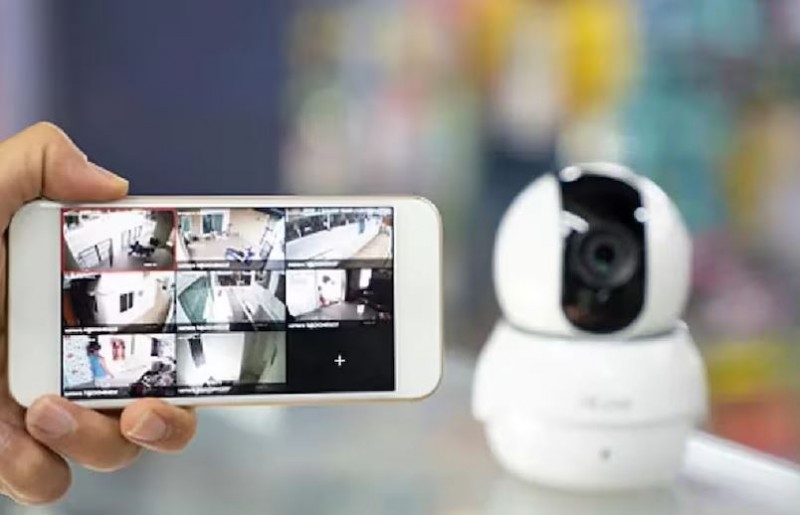
Mumbai: The potential dangers of having CCTV cameras inside homes have come to light with a recent incident in Mumbai's Bandra. A 21-year-old YouTuber filed a complaint after his personal video was leaked. The YouTuber had installed CCTV cameras in his house, and someone gained unauthorized access to the footage, sharing his intimate video on social media.
In response to the incident, the police have registered a complaint against an unknown person. According to the police, on November 17th, someone accessed the victim's CCTV camera improperly, but the information about the incident only surfaced on December 9th. The police have filed charges under various sections of the Indian Penal Code and the IT Act.
Details of the Case:
In his complaint, the YouTuber explained that he had installed CCTV cameras for security within his home. One of the cameras was installed in his bedroom. On December 9th, a friend of the victim called him and informed him that a video of him changing clothes was going viral on social media.
Upon verification, the YouTuber found that the video was from his own bedroom. Subsequently, the victim started receiving numerous phone calls from people who had seen the explicit clip. The investigation into the case is ongoing, with officials suggesting the involvement of someone known to the victim. However, a thorough examination of every angle is being conducted.
How CCTV Video Leaks Occur:
CCTV video leaks can occur through various means, often stemming from vulnerabilities in security systems. Here's a more detailed exploration:
Weak Passwords: If the CCTV system uses weak or easily guessable passwords, it becomes susceptible to hacking attempts. Cybercriminals can exploit this weakness, gaining unauthorized access to the video feed.
Network Vulnerabilities: When CCTV cameras are connected to the internet or a network, any vulnerabilities in the network infrastructure could be exploited. If the network lacks proper security measures, it becomes an entry point for hackers.
Malware Attacks: Malicious software, such as malware or ransomware, can compromise the security of a CCTV system. Once installed, these programs can manipulate or steal recorded footage, leading to unauthorized access and potential leaks.
Unsecured Wi-Fi Networks: If the CCTV system relies on Wi-Fi connections, an unsecured or easily accessible Wi-Fi network can be exploited. Hackers within the range of the network may gain access to the CCTV system and its recordings.
Phishing and Social Engineering: Cybercriminals often use phishing emails or social engineering tactics to trick users into revealing login credentials. If someone with access to the CCTV system falls victim to such attacks, it can compromise the entire security infrastructure.
Software Vulnerabilities: Outdated or unpatched software in the CCTV system can have vulnerabilities that hackers exploit. Regular updates and patches are crucial to fixing these vulnerabilities and maintaining system integrity.
Physical Access: In some cases, unauthorized physical access to the CCTV equipment can lead to video leaks. If an intruder gains access to the recording devices, they can manipulate or copy the footage.
Insecure Remote Access: If the system offers remote access for monitoring, improper configuration or lack of encryption can make it susceptible to interception. This can result in unauthorized viewing or manipulation of the CCTV footage.
Compromised Endpoints: The devices connected to the CCTV system, such as computers or smartphones, can be targeted. If these endpoints are compromised, attackers may gain control over the entire surveillance system.
Insecure Cloud Storage: If the CCTV footage is stored in the cloud, inadequate security measures may expose it to unauthorized access. Cloud service providers must implement robust security protocols to prevent data breaches.
India's Domestic Air Traffic Soars By 9% in November; What About Akasa
Indian Railways To Infuse Rs.1 Lakh Cr for New Trains and Infra Upgrade
Uttarakhand High Court lifts ban on mechanised dredging of rivers